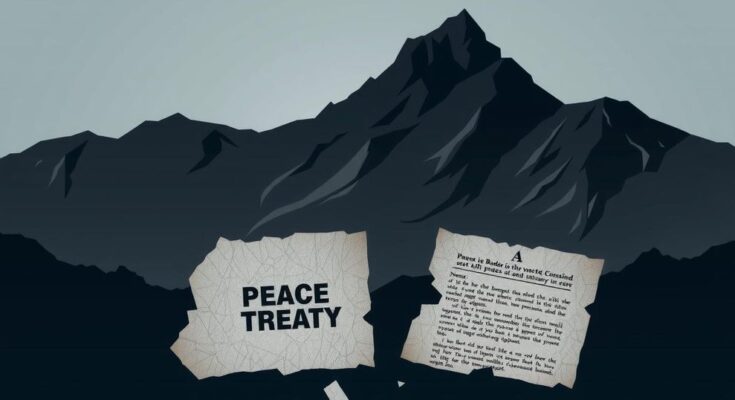Major General Peter Cirimwami, military governor of North Kivu, DRC, was killed in combat against the M23 rebel forces, who have been making territorial gains including areas around Goma. His death underscores the escalating conflict, which has led to significant civilian displacement and heightened humanitarian concerns, prompting advisories for foreign nationals to evacuate Goma. Allegations have surfaced regarding Rwanda’s support for the M23 group, worsening regional tensions.
The military governor of the North Kivu province in the Democratic Republic of the Congo (DRC), Major General Peter Cirimwami, has succumbed to injuries sustained during a clash with M23 rebel forces. Reports indicate he visited frontline troops in Kasengezi, approximately 13 kilometers from Goma, on the day of his death. Cirimwami was actively engaged in operations against the M23 rebels, who are now encroaching upon the provincial capital, Goma.
Local authorities confirmed the general’s death through anonymous sources within the government, military, and the United Nations. His passing underscores the escalating violence in the region as M23 forces have gained substantial control over territories surrounding Goma, which serves as a crucial hub for security and humanitarian operations with a population of around 2 million.
Recent actions by the M23, including the takeover of Sake—a town about 27 kilometers from Goma—have heightened panic within the city. As highlighted by UN Secretary-General Antonio Guterres, the conflict has led to significant displacement, with over 400,000 individuals uprooted this year alone, exacerbating a dire humanitarian crisis.
Matthew Saltmarsh, a representative for the UN High Commissioner for Refugees (UNHCR), expressed grave concern for the safety of civilians, reporting that numerous families have fled from various displacement sites on the outskirts of Goma toward the city seeking refuge amidst heavy bombardments. The ongoing violence has prompted nations, including the United States and the UK, to advise their citizens to evacuate Goma while transport options remain available.
The M23 group’s activities have been linked to serious human rights abuses, driving over two million people from their homes since hostilities reignited three years ago. Displaced individuals like Mumulirwa Baguma Destin articulated fears of forced recruitment into fighting ranks upon M23’s arrival, illustrating the profound anxiety within affected communities.
M23, one of several armed factions in eastern DRC, is engaged in a protracted struggle for control amidst rich mineral resources close to the Rwandan border. Despite Rwanda’s denial of supporting M23, there are allegations from the DRC and UN officials accusing the Rwandan government of providing military backing to the group, raising tensions in the area.
Individuals displaced by the ongoing conflict reflect varying sentiments; many fear a return to what they perceive as foreign domination under M23’s rule. Journalist Malcolm Webb reported on dismal conditions in refugee camps, highlighting challenges such as inadequate sanitation and persistent threats of sexual violence, reinforcing the urgent need for effective humanitarian assistance.
The political and military situation in the DRC, particularly in North Kivu, is fraught with complexity, stemming from a long history of armed conflict involving various factions. The M23 rebel group has emerged as a key player in recent hostilities, garnering attention due to its territorial ambitions and alleged ties to foreign governments. The humanitarian consequences of the ongoing conflict are severe, with staggering displacement figures and widespread reports of atrocities committed against civilians, creating one of the world’s largest humanitarian crises.
The assassination of Major General Peter Cirimwami marks a significant event amid the ongoing conflict in North Kivu, illustrating the dangerous landscape facing military and civilian authorities alike. The escalation of violence by M23 rebels poses an immediate threat not only to Goma but also to the region’s stability. With over 400,000 people displaced and international calls for evacuations, the situation necessitates urgent humanitarian response and an emphasis on securing peace in eastern DRC.
Original Source: www.aljazeera.com




